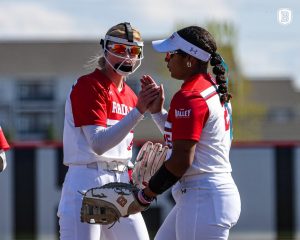Good Thing
With the National Football League focusing heavily on player safety in recent years, Major League Baseball was under pressure to consider revising some oftheir rules as well. One of the biggest safety concerns in baseball was home plate collisions.
The 2014 season will debut an experimental rule to increase player safety and attempt to limit collisions at the plate. The rule states that the runner attempting to score will not go out of his way to hit the catcher. If the runner does so, he is out, regardless of where the ball is. Also, the catcher cannot block the path of the runner unless the catcher is in the possession of the ball.
Overall, this rule seems to be a nice compromise between the players and the league. It allows for the excitement of home plate plays to still exist, but ensures more intentional collisions to become obsolete. This minor tweak in the rule system shouldn’t affect how catchers prepare for the season; just allow them to play longer. More players are beginning to realize the affects collisions may have on their body and how they function later on in life.
At the end of the day it comes down to the safety and longevity of players. How much are you willing to sacrifice to win a game?
-Megan Gorecki
Overreaction
With spring training upon us, Major League Baseball (MLB) has made some new changes to America’s pastime. A big change surrounds home-plate collisions and making that aspect of the game safer.
MLB has made it a rule that catchers can’t block home plate if they don’t have a play at the plate. The new ruling has been prompted by the amount of collisions at home plate in the recent past.
This is taking a big aspect out of the game. Runners may be tempted to slide in fear of an umpire’s ruling. Collisions are rare, but they are game-changing plays when they do occur.
We have seen collisions go wrong before, such as Pete Rose colliding with Ray Fosse in the 1970 All-Star Game. The allstar game didn’t have the same meaning it does today, so it was out of hand when Rose engaged the collision. When Buster Posey was involved in a 2011 collision, it limited his season to 45 games. Posey likes the rule, but former White Sox catcher A.J. Pierzynski disagrees. Pierzynski told Yahoo! Sports, “it’s part of the game you signed up for.”
A game-changing play has been taken out of baseball because of one major collision, and that’s ridiculous.




